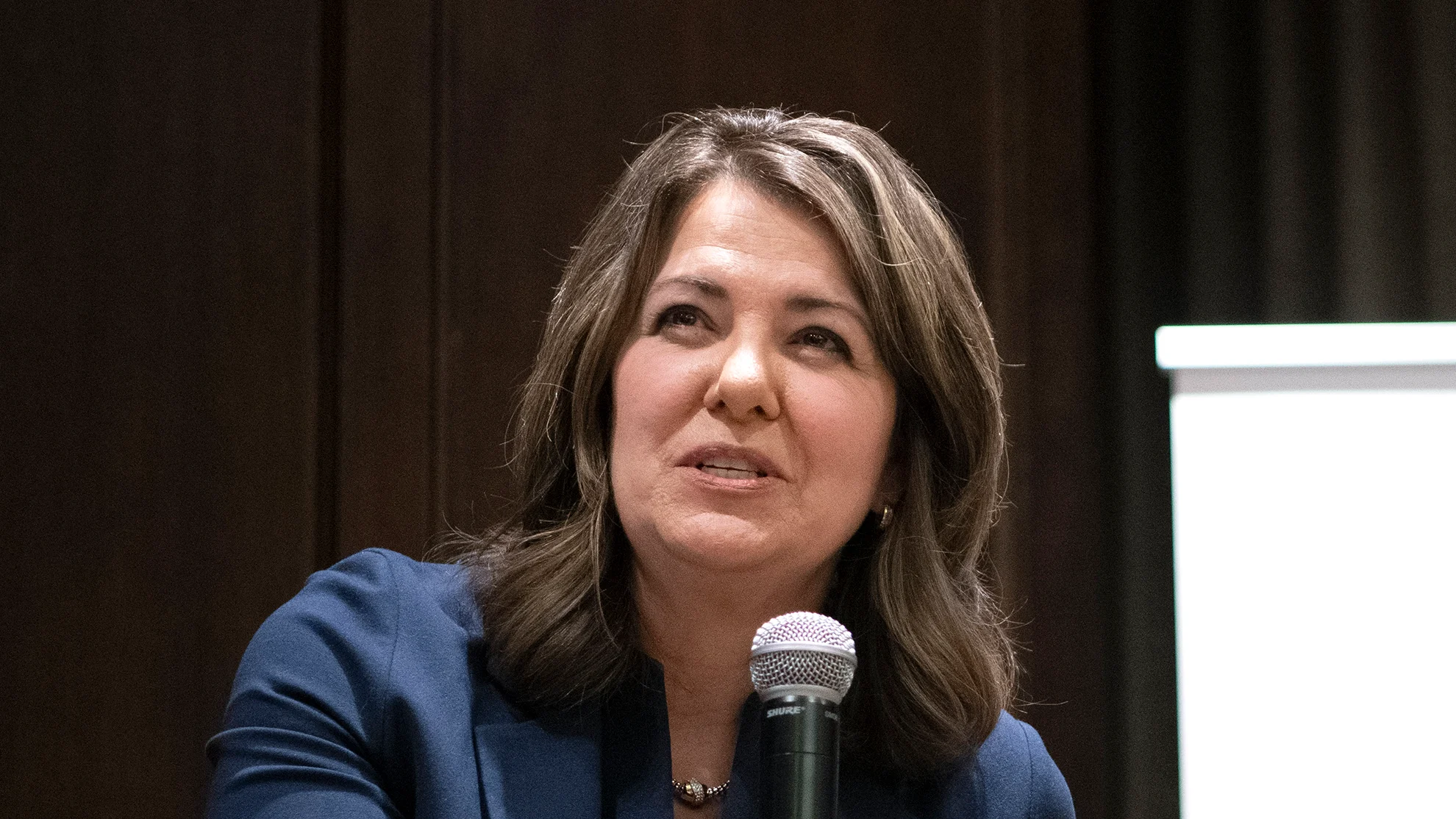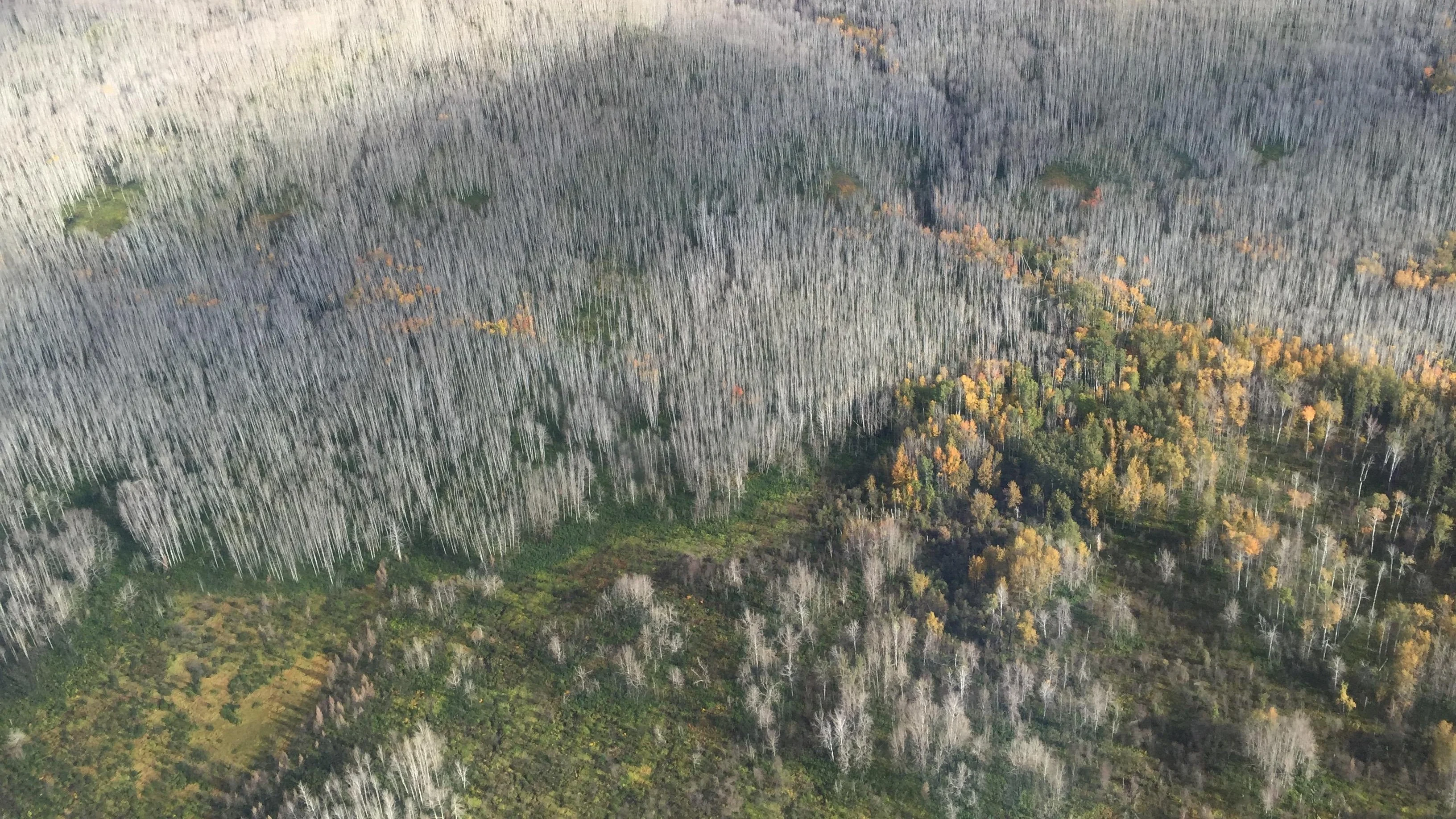
What’s next for net-zero and climate change in a post-election Alberta?
Danielle Smith and the ruling UCP held onto power in this year’s election. Experts say there’s room for optimism, though Alberta’s plans to curb emissions are still a ‘plan for a plan.'
After the dust settled on Monday, the ruling United Conservative Party held onto control of Alberta’s provincial government. The right-wing UCP — which won the province 49 seats to the centre-left NDP’s 39 — and its leader Danielle Smith have a history of taking a combative stance against climate action, particularly those set by the federal government.
As a prime example, Smith’s victory speech took aim at Liberal Party of Canada Prime Minister Justin Trudeau’s proposed emission caps for the oil and gas sector.
Alberta accounts for 40 per cent of Canada’s emissions, despite having only nearly 4.7 million of the country’s 39 million people. The province’s oil is heavily carbon-intensive to produce, meaning it contributes an outsized amount to human-caused climate change. One study showed that it had higher per-barrel emissions than oil from 46 other countries. As such, it’s a vital part of Canada’s goals of reaching net zero.
Experts told The Weather Network they are hopeful the Smith government will support renewable energy sources, energy efficiency, and other pathways toward net-zero emissions. However, they also highlighted some holes in the province’s climate policy.
Decarbonization ‘inevitable’
Gretchen Fitzgerald, the Sierra Club Canada’s national programs director, told The Weather Network she thinks it’s odd that climate change took such a backseat this election, given the wildfires that raged across much of the province throughout May.
“I think climate change should have been front of mind,” she said.

She also suggested the province needs to handle its issue with tailings leaks and emissions, which could include tighter regulations. She explained that, considering oil and gas companies have been raking in record profits, they should be investing that money in cleaning up or addressing some of the issues that come along with fossil fuel extraction, rather than pushing it onto taxpayers.
“We believe it’s time for that sector to do its part. Other parts of the economy and industry are doing their parts to reduce emissions,” she said.
Meanwhile, Simon Dyer, deputy executive director of the Pembina Institute, said he hopes the province will push for more renewable energy. In a post-election press release, the non-profit urged the governing party to “capitalize on momentum around the clean energy economy.”
Part of the rationale, Dyer explained, is that investments in renewable energy are increasing globally. According to a recent International Energy Agency report, for every $1 USD invested in oil and gas there is $1.70 USD invested in renewables.
Additionally, he said it’s “inevitable” that the world will continue to decarbonize, and that low-carbon energy sources will look more and more appealing — so it would help Alberta, which produces 80 per cent of Canada’s oil, to diversify its economy and foster jobs in new fields like industrial emission reductions and renewable energy. Thanks to hearty amounts of sun and wind, Alberta is also poised to become Canada’s renewable energy capital.
“So it's a huge opportunity. And so the new government Alberta really needs to embrace that opportunity,” he said.
According to Dyer, there were some “really interesting” steps in the province’s emission reduction strategy leading up to the election. This includes reducing methane emissions from the oil and gas sector by 80 per cent compared to 2014 levels by 2030.
“There are some pretty significant commitments in that,” Dyer said of the UCP’s platform.
He added the province should be looking to attract more investments from renewable energy companies, and find ways to decarbonize its oil and gas sector, including through the use of carbon capture and storage.
The federal government should also invest in emission reductions and renewable energy in Alberta, according to Dyer. He added there’s room for teamwork between Trudeau and Smith’s jurisdictions, despite the jabs they’ve traded over the years. For instance, Ottawa and Alberta worked together on an industrial carbon pricing scheme this year.
WATCH BELOW: How climate change is fuelling Alberta's wildfire season
A ‘plan for a plan’
But the province needs to improve in some key areas, according to Dyer. For instance, it needs to address building energy usage and emissions from vehicles, while also bolstering energy efficiency. (The provincial government shuttered Energy Efficiency Alberta in 2020, which gave rebates for homeowners looking for more sustainable energy.)
Dyer also highlighted the UCP’s Emissions Reduction and Energy Development Plan, which is geared to reach the federal target of net-zero by 2050. Both the federal government and the Government of Alberta have now committed to net-zero emissions by this date.
While the feds have made a commitment to reduce Canada’s emissions by 40 to 45 per cent by 2030, compared to 2005 levels, Alberta’s plans in this area lack reduction goals between now and 2050. This could, potentially, throw a wrench into the national goals.
“So, obviously … all provinces and territories and industrial sectors need to do their fair share,” Dyer said, adding he hopes the province will adopt these near-term goals in the future.
According to Fitzgerald, it will be vital for the province to establish goals between now and 2050. These goals mean the province will make steady progress, and ensure that economic opportunities and savings from renewables and energy efficiency are seen in the province. As it stands, the government document is more of a “plan for a plan,” she said.
Dyer said he’s confident that it’s possible for Alberta to reach net-zero by 2050.
“We’re quickly moving [away] from a time where it was possible to not have a climate plan,” he said. “It’s just a matter of coming to the table and working out how to do it.”
Fitzgerald was more reserved on the matter: “Now, let’s see what happens post-election.”
Thumbnail Image: Premier Danielle Smith spoke and then answered questions from guests at a Calgary Women in Energy luncheon at Calgary’s Petroleum Club on Wednesday, April 19, 2023. (Chris Schwarz / Government of Alberta)

